Free Hotline
400-803-9333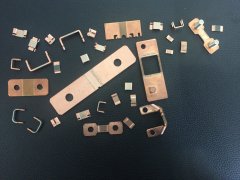
Two most commonly used technologies in photovoltaic power plants operating sensors include resistive current shunt sensor (shunt resistor ) and current sensor for magnetic field ( Hall Effect ). As a leading supplier of shunt resistors, Microhm concentrates on the current sense applications. Resistance shunt provide an accurate and direct measurement of the flow, but do not offer any galvanic isolation. The shunt current is the least expensive solution available today for current measurement. A shunt consists of a precision r...
Date:2019-08-08 [More+]
Apart from current sense monitoring using a resistor, like Microhm current sense resistor MMS Series, two other less common methods are used. One uses a Hall Effect sensor to measure the flux field generated by a current. While this is non-intrusive and has the advantage of no insertion loss, it is somewhat expensive and requires a relatively large amount of PCB real estate. The other method, using a transformer to measure induced AC current, is also size and cost intensive; while also useful only for AC current. If using a r...
Date:2019-08-07 [More+]
The nominal power rating is defined for a certain ambient temperature in free air. Note that the amount of energy that a resistor in practise can dissipate without causing damage, is strongly dependent on the operating conditions and therefore not equal to the nominal power rating. For example, a higher ambient temperature can significantly reduce the power rating. This effect is referred to as derating. It should be taking into account by the designer. Often the power rating is chosen largely above the electric power. Typica...
Date:2019-08-05 [More+]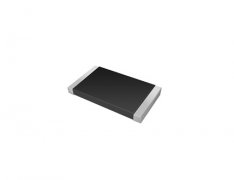
Surface mount foil resistors are commonly produced as two terminal devices with solderable wraparound terminations. They are available in a variety of standard footprints including sizes 0603 up to 2512, like Microhm Electronics MPR series, NMS types. The typical surface mount foil resistor consists of a flat, rectangular, insulating substrate (e.g., alumina) on top of which the resistor element is bonded using adhesive materials (e.g., resins or polymers). The resistor element is made from proprietary nickel-chromium based a...
Date:2019-08-02 [More+]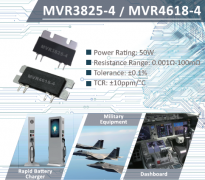
Metal Foil Resistor is an important part of Microhm Electronics product linup. We offer surfact mount type, like NMS2818,NMS4527,NSR series and MPR series, as well as radial type, including To247 type resistor, To218 type resistor and MVR series. The excellent properties for precision and stability are due to a combination of several characteristics, which are following from the design principles of the metal foil resistor. Foil resistors achieve a low TCR by taking advantage of two characteristics of the foil. The resistance...
Date:2019-08-01 [More+]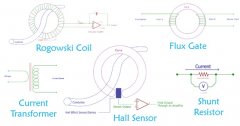
Selecting the proper method for current sensing is not a difficult thing. There are few factors need to be considered for choosing the right method, like: 1. How much accuracy is needed? 2. DC or AC measurement or both? 3. How much power consumption is required? 4. What is the current range and bandwidth to be measured? 5. Costing. Other than those, acceptable sensitivity and interference rejection are also need to be considered. A low-value resistor in series is used to sense the current. When the current flow through a low-...
Date:2019-08-01 [More+]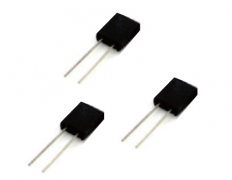
Illustrations of the benefits of low TCR may be found within thousands of successful applications. Lets review three application examples where low TCR offers certain performance advantages here. Precision Instrumentation High-accuracy digital multimeters manufacture might need a resistor component for a new series of 8.5- and 7.5-digit units. To achieve necessary 8.5-digit accuracy, the specified resistor needed to offer extremely low TCR, high-precision, repeatability, low thermal EMF, low noise, long-term stability and min...
Date:2019-07-30 [More+]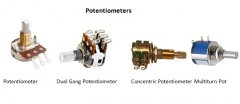
A potentiometer is a manually adjustable variable resistor with 3 terminals. Two terminals are connected to both ends of a resistive element, and the third terminal connects to a sliding contact, called a wiper, moving over the resistive element. The position of the wiper determines the output voltage of the potentiometer. The potentiometer essentially functions as a variable voltage divider. The resistive element can be seen as two resistors in series(potentiometer resistance), where the wiper position determines the resist...
Date:2019-07-29 [More+]